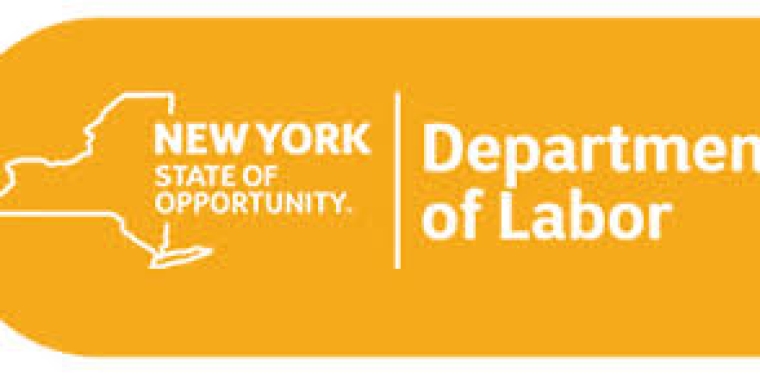
Senator Gallivan Announces Senate Passes 2018 Jobs & Opportunity Agenda
Jim Ranney
May 3, 2018

Senator Patrick M. Gallivan (R-C-I, Elma) says the New York State Senate has passed the 2018 Jobs and Opportunity Agenda to strengthen the state’s economy and create needed jobs for hardworking New Yorkers. The Republican Majority Conference’s plan focuses on comprehensive tax, regulatory, and economic development reforms that will help make New York more competitive and foster job growth at a time when the state’s private sector faces widespread obstacles to success.
“This package of bills will help improve New York’s business climate by reducing the existing tax burden and removing unnecessary regulations that make it difficult for businesses to grow and succeed,” Gallivan said. “While we have made some progress in these areas over the past several years, it is clearly not enough. We must do more to help existing business and new businesses to ensure jobs and opportunities are available for hard working New Yorkers.”
The package of bills include two sponsored by Senator Gallivan:
S2133 - Creates a Task Force charged with examining, evaluating, and making recommendations about the efficiency of the rulemaking process in the State Administrative Procedures Act. Since 1975, this act has been amended numerous times but has never undergone a comprehensive review its overall effectiveness. The Task Force would help ensure consistent, uniform rules are established and whether the existing statutory process results in rules, regulations, and licenses that are overly burdensome on regulated entities.
S3392A - Establishes the GrowNY pilot program, an economic gardening pilot program within the state Department of Economic Development to stimulate investment in the state economy by providing technical assistance for expanding businesses in the state. Economic gardening is a long-term entrepreneurial strategy designed to generate new jobs from the existing base of businesses in the community.
The Jobs and Opportunity Agenda is part of the three-pronged “Blueprint for a Stronger New York” that focuses on making the state less costly and more attractive for hardworking New Yorkers. When combined together, the Blueprint’s Affordability, Opportunity, and Security Agendas will comprise a powerful and comprehensive plan to give all New Yorkers the opportunity to succeed.
Cutting Taxes on Small Businesses
S1116A - Allows real property owned by a small business (100 or less employees) to be eligible for the STAR property tax savings program, saving $275 million.
S2120A - Provides significant new tax savings for small businesses and small farms by expanding the existing Personal Income Tax exemption and reducing the Corporate Franchise Tax business income tax rate from 6.5 percent to 2.5 percent over a two-year period. The bill would save a total of $495 million when fully implemented.
S6793A - Helps businesses who promote the success of student employees. The minimum wage reimbursement tax credit provides eligible employers with a credit for employing students at the minimum wage rate. Currently, the tax credit is designed to incentivize employers to hire and train student-employees who may be new to the labor market. Unfortunately, the way the credit is presently structured, employers who give hard-working student-employees even a modest hourly raise are no longer eligible to receive credit for those student-employees. This bill would correct this disincentive to provide student-employees with a modest raise by allowing credit for wages that are not in excess of the applicable minimum wage plus fifty cents.
Cutting Red Tape and Over-regulation
S6095 - Allows the Administrative Regulations Review Commission to examine an issue and vote on a 90-day delay prior to the adoption of proposed administrative rules. This will help when businesses raise concerns about possible rulemaking inconsistencies with statutory authority or legislative intent, or when requirements could potentially burden taxpayers or local governments.
S4120A - Gives first-time offenders of state small business regulations a reprieve from paying fines to help foster a productive relationship between the state and business owners. The measure would prevent the state from fining a small business for a first violation of regulations, unless the agency determines that the violation directly affects public health or safety. The agency then would provide literature or an in-person meeting to inform such small business of its regulations to improve compliance.
S5828 - Establishes the Unfunded Mandate Review Act to protect local governments from mandated policies that they must pay for, and in turn protects taxpayers from increasing tax levies. The bill requires the Comptroller to provide the fiscal impact notes upon request of a committee for any bill including an unfunded mandate, conduct a continuing mandate study of unfunded mandates upon any local government, and prepare comparative costs of proposed regulations.
S5791 - Promotes mandate relief and flexibility in tailoring regulatory requirements to the specific needs and capabilities of local governments. The bill restores recently expired provisions that streamlined the process for submitting petitions to request approval of an alternate method to meet a regulatory mandate.
S5982A - Allows the state Administrative Regulation Review Commission (ARRC) to file a formal objection to proposed rules when they are burdensome and harmful to businesses, local governments, or other regulated parties. This bill seeks to encourage agencies to consider changing rules to accommodate the concerns raised by ARRC with the goal of having the agencies reconsider the rule.
S6706 - Fosters communication and cooperation be designating an existing state agency employee as a “Small Business Liaison”, responsible for providing businesses with a reliable contact. The liaison will give important regulatory information, hear the businesses concerns and advocate on behalf of the business within the agency. It expands on the New York State Workers’ Compensation Board’s successful implementation of an “Advocate for Business” that connects New York State business owners to help understanding the complex workers' compensation system.
S2999A - Provides financial assistance to small businesses for the purpose of pollution prevention, control and compliance. By increasing access to capital for small businesses seeking to pursue pollution prevention improvements, even when compliance is not an immediate issue, both the business and the state’s environment will benefit from the enhanced environmental performance.
S4590A - Promotes greater involvement of small businesses in the rulemaking process and make it more open and fair. The bill requires negotiated rulemaking to provide additional opportunities for small business and the public to directly participate in the development of proposed agency regulations. Negotiated rulemaking allows small business owners and representatives of all significant interests who would be affected by a regulation to meet and develop as broad a consensus as possible on terms of a rulemaking proposal.
Making New York a Leader in Job Training:
S1469A - Increases access to career and tech programs at BOCES. The bill would increase the current salary cap for BOCES CTE instructors from $30,000 to $50,000 phased-in over five years to attract and retain qualified and skilled teachers.
S2124B - Directs the Commissioner of Education to develop guidelines for use by high school guidance counselors in facilitating student awareness and interest in apprenticeships, pre-apprenticeships, and career and technical education opportunities. This would particularly apply to the hardworking men and women looking to gain footing in the building, construction, manufacturing, and maritime trades where positions all across the state are often left unfulfilled.
S2232A - Directs SUNY and CUNY community colleges to work with local businesses and industry to develop work force training programs that target the unemployed and provide the skills necessary for individuals to obtain jobs in their communities. This bill also provides funding for the initial creation of this program by providing $500,000 in grants to start and additional incentive funding to those community colleges that successfully place trained individuals in jobs.
The bills have been sent to the Assembly.
-30-
related legislation
Share this Article or Press Release
Newsroom
Go to Newsroom
Bill to Create Young Farmer Apprenticeship Program Signed Into Law
December 2, 2020

NY State Legislature Must Reassert Itself in Albany
December 1, 2020

